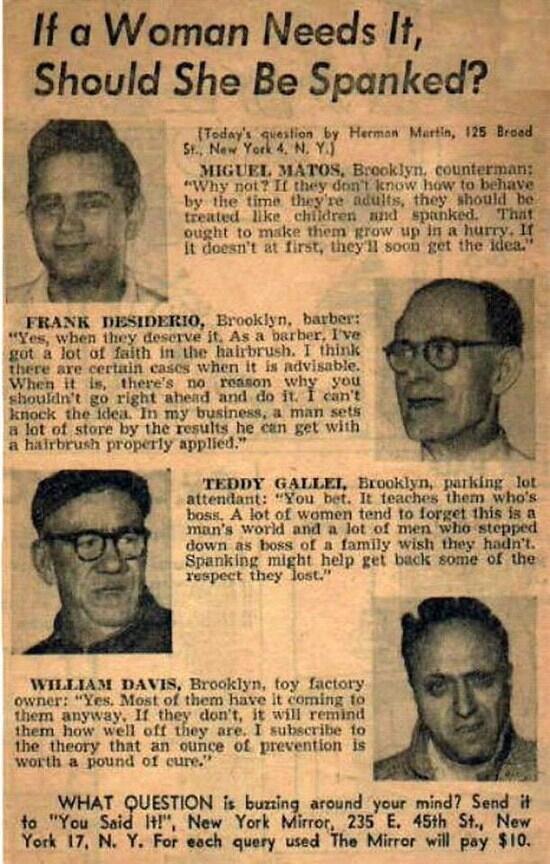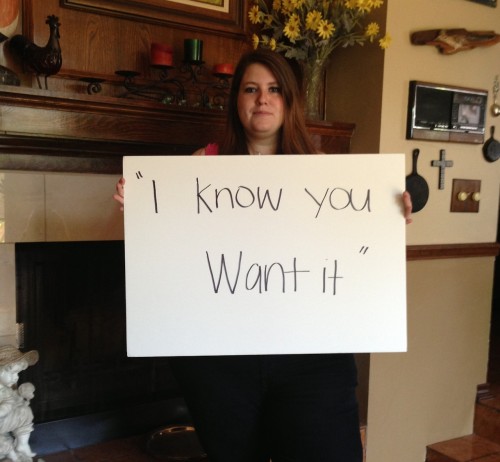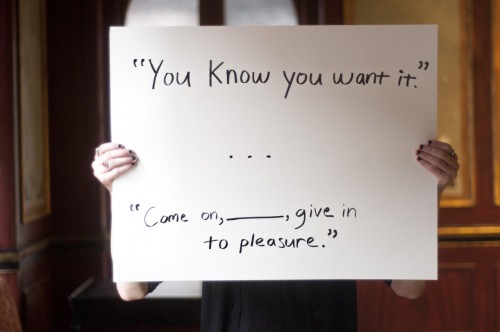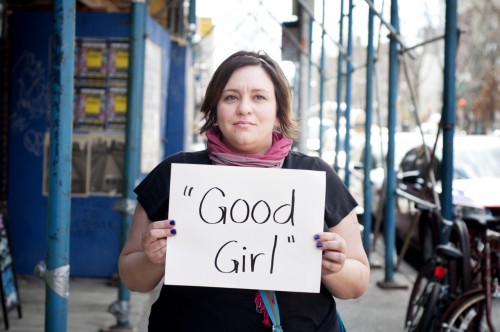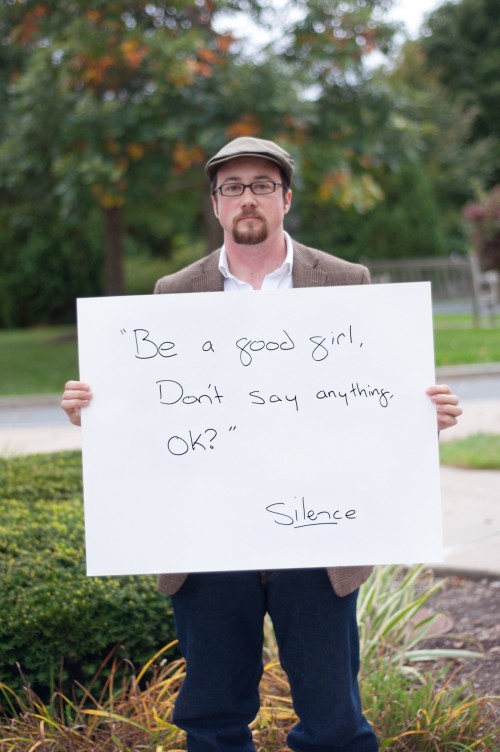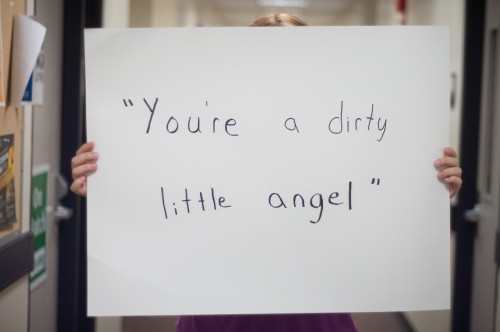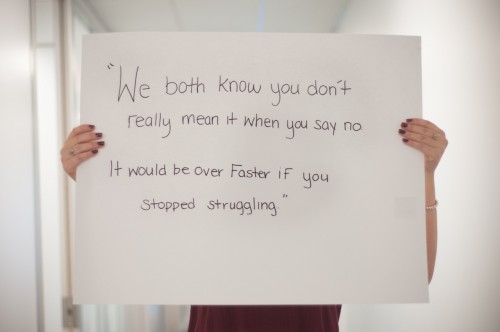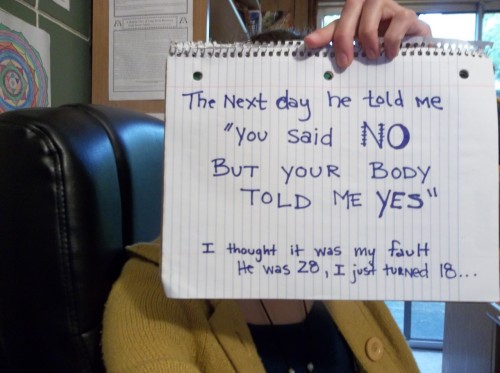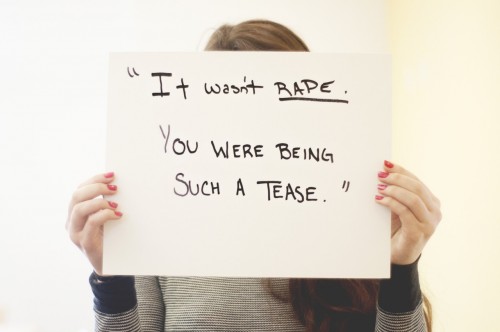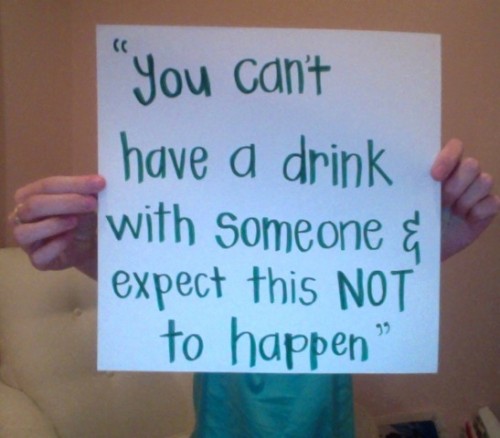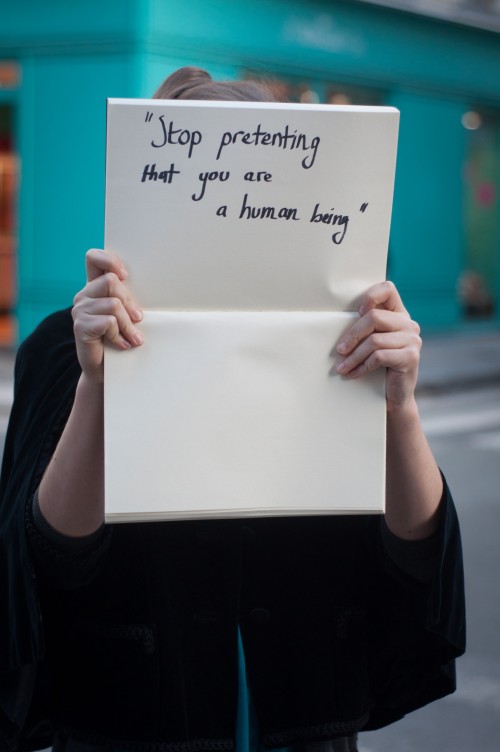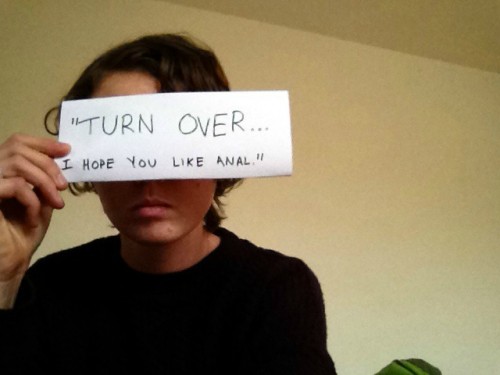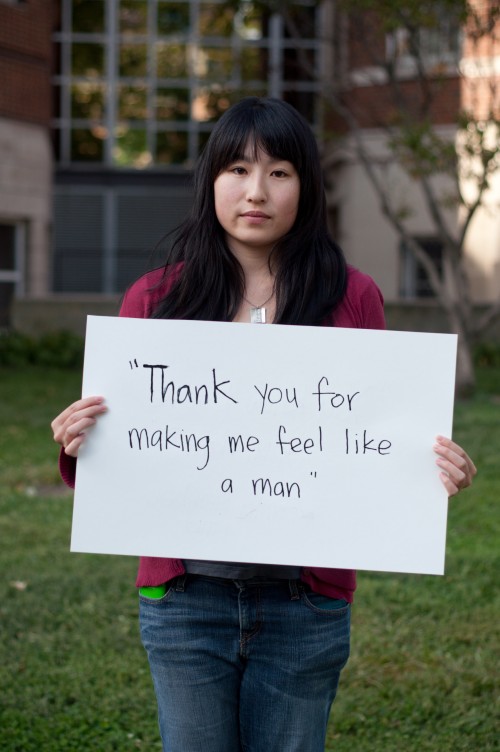Lauren McGuire pointed us to a post by Gilligan at Retrospace inspired by a scene in the 1963 Western, McLintock! The movie included a scene in which George McLintock, played by John Wayne, uses a shovel to spank his estranged wife, played by Maureen O’Hara.
The spanking scene apparent stuck quite the chord, as it was used repeatedly in the promotional materials.
Gilligan suggests that the spanking of adult women by adult men was a midcentury theme, from Kiss me Kate to comic books:
Here’s an Q&A from the New York Daily Mirror, circa 1950s (thanks to @perstornes):
Lady spanking is a manifestation of the infantilization of women. The idea that they are not men’s equals, but are expected to obey them as subordinates and can be punished when they do not behave. Of course, materials riffing on the spanking adult women today (outside of porn and fetish communities) would probably inspire an outcry, but that leaves open the possibility that the gendered power asymmetry simply manifests in other ways. Adult women are still infantilized (see posts here, here, and here) and dominance/submission is still sexualized in mainstream materials (consider our post asking what love is supposed to look like).
Originally posted in 2010; re-posted in response to a new example. Images borrowed from here, here, here, here, here. H/t Retrospace.
Lisa Wade, PhD is an Associate Professor at Tulane University. She is the author of American Hookup, a book about college sexual culture; a textbook about gender; and a forthcoming introductory text: Terrible Magnificent Sociology. You can follow her on Twitter and Instagram.






